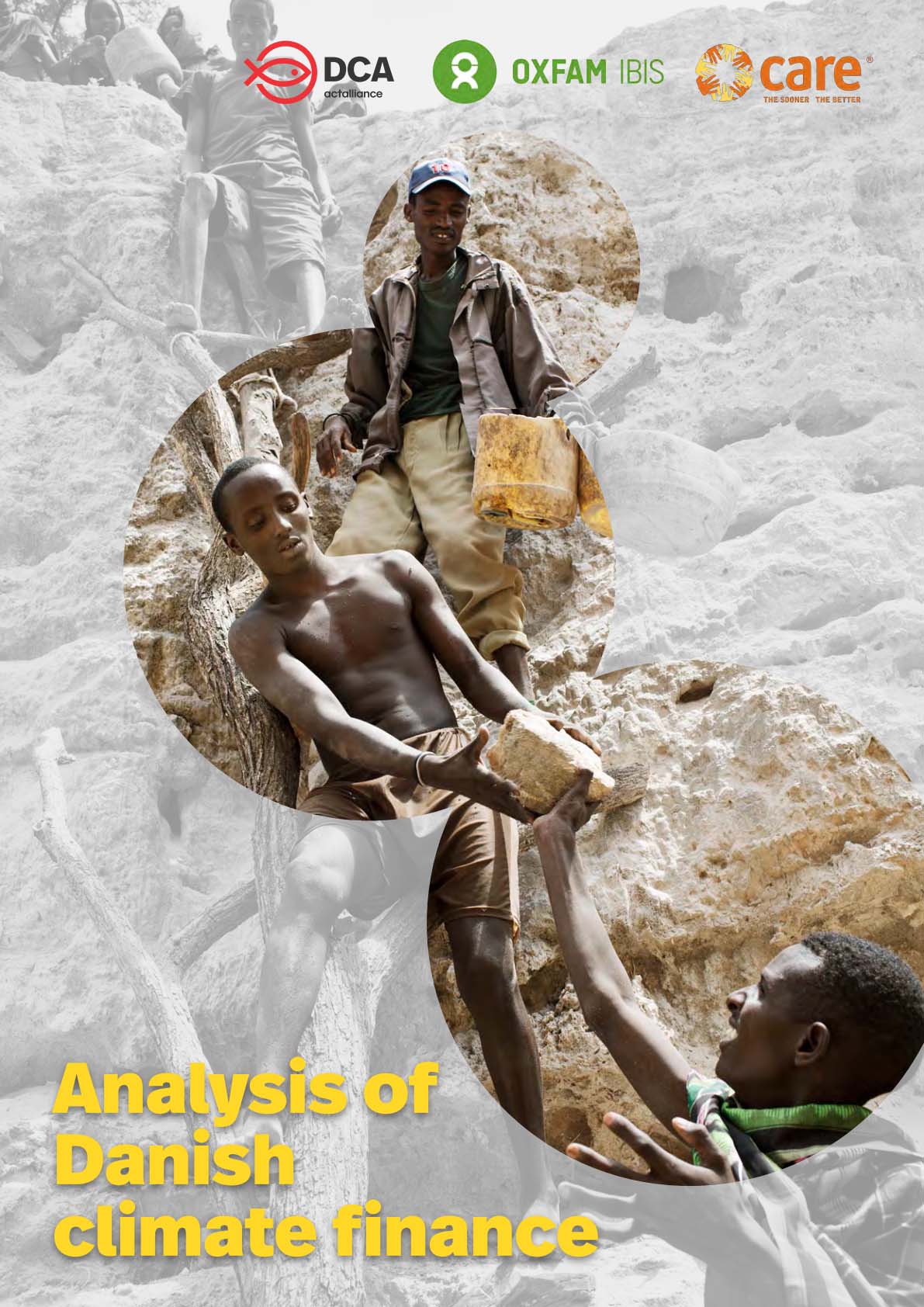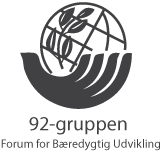 Analysis of Danish climate finance
Analysis of Danish climate finance
By INKA consult
For DanChurchAid, CARE Denmark and Oxfam IBIS
Foreword
Climate finance is one of the thorniest issues on the UN climate change agenda. Developed countries claim to be complying with their financial commitments, while developing countries continue to ask where the money is. To overcome this recurring discussion, the parties must first hammer out and agree on some rules for the accounting of climate finance.
We, the undersigned three Danish NGOs, namely CARE Denmark, DanChurchAid and Oxfam IBIS, decided to commission the present report. We wanted to learn more about Danish climate finance, whose reporting methods are adhering to OECD guidelines and to standard practices among developed countries in general. Consequently, the conclusions are relevant for a much broader audience than our three organisations. Understanding the limitations of current reporting rules and practices is an important step in designing better climate finance accounting modalities for the future. This is already on the agenda of the UN climate negotiations. Accordingly, the recommendations of this report serve to illuminate an important debate. The conclusions of the report give rise to four recommendations on how to proceed in these difficult negotiations.
1) There should be an agreed definition of climate finance, accounting and reporting: A major conclusion of the study is that there is a lack of standardised climate finance reporting. The current UNFCCC reporting guidelines provide no internationally agreed definitions or clear methodology to this effect. Biennial Reports have shown that current guidelines leave ample room for interpretation and enable a wide range of reporting approaches. This has resulted in poorly harmonized monitoring and reporting practices, complicating comparisons between figures from different countries.
2) There should be greater transparency and accuracy in the assessments: The report highlights a number of problems associated with using OECD accounting standards for climate finance reporting. A Danish water project in Uganda is examined as a case. Only a limited share of the project focused on climate change, yet all expenditure ended up being reported as 100% climate finance. Many developed countries use of the so-called Rio markers as the basis for reporting to UNFCCC. This practice, however, does not guarantee sufficiently accurate accounting of climate finance, which is necessary to build mutual trust. Accordingly, more accurate rules must be developed. We suggest looking at the following areas in particular.
• Agreement on transparency: To make it transparent what is counted as climate finance, both donors and recipients should have the same information about how climate finance is mobilized, allocated and spent.
• Stepless assessments: In Denmark as well as in other developed countries using the Rio markers to determine the level of climate finance, the spending on each project is counted as 100%, 50% or 0% climate finance. This is a very blunt tool. There is a need for greater accuracy, including a stepless scale to realistically assess the climate finance provided by each project.
• Better breakdown by type of climate action: Many projects contribute to both mitigation and adaptation. Such projects are currently labelled ’cross-cutting‘ (in the case of Denmark, approximately 50% of climate finance is reported to be in this category). This method, however, is too crude to capture the exact balance between mitigation and adaptation in each undertaking. Once again, the solution is to introduce a stepless assessment of the mitigation-to-adaptation ratio in each climate-related undertaking.
3) Climate finance should be balanced between mitigation and adaptation: The report notes that current climate finance is skewed in favour of mitigation rather than adaptation. This imbalance is expected to becomes even more pronounced when private finance mobilized by developed parties is included in the reporting, as there is little private investment in adaptation. This calls for political leadership to ensure compliance with commitments to balanced climate finance.
4) Climate finance should be genuinely “new and additional”: Governments have also agreed that climate finance should be “new and additional”. The report touches upon this concern, as it documents how funds are often counted both as ordinary development aid (ODA) and as climate finance. This practice, combined with the use of the Rio markers, may create incentives to make development aid greener and more focused on climate change resilience. However, it also implies that developed countries are avoiding responsibility for making climate finance “new and additional”, when it is simply taken from decades-long general ODA budgets. The international community has accepted that climate change imposes a new and additional burden on poor and vulnerable countries, which is why it has been agreed that climate support must also be new and additional. This needs to be upheld in practice.
| Birgitte Qvist Sørensen | Niels Tofte | Mie Roesdahl |
| Generalsekretær | Generalsekretær | Generalsekretær |
| DanChurchAid (ACT Alliance) | CARE Denmark | Oxfam IBIS |

